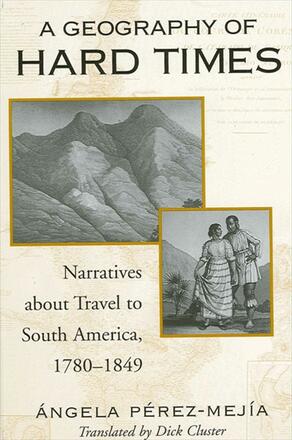
A Geography of Hard Times
Narratives about Travel to South America, 1780-1849
Alternative formats available from:
Unravels the rich complexities of the colonial travel experience.
Description
This fascinating glimpse into South America's past focuses on the works of four European voyagers who came to South America and left a legacy of travel writing in their wake: José Celestino Mutis, a Spanish botanist and doctor; Alexander von Humboldt, a German geographer; Maria Graham, a British historian; and Flora Tristán, a French feminist and labor activist whose father was Peruvian. Each took on his or her voyage as a personal endeavor, and collectively their travels covered the Andes from its northern traces in Venezuela to the southern heights of Chile and Arequipa. Their writing contributed to the construction of a complex map of the Andes in which many levels of physical and social geography may be read. By analyzing the travelers' narratives, illustrations, and maps, Ángela Pérez-Mejía unravels the rich complexities of the colonial travel experience, explores its impact on both the object of description and the traveler's subjectivity, and the collective readership seeking a discourse of nationhood.
Ángela Pérez-Mejía is an Associate Professor in the Romance and Comparative Literature Department at Brandeis University. The Spanish version of this book won honorable mention in the literary essay category, International Literary Prize, Casa de las Américas, Cuba, 2000.
Reviews
"Pérez-Mejía successfully analyzes the multiethnic Latin American society of this period, with all the social tensions that existed during the creation of the new republics emerging from Spanish control. The four European voyagers she presents are a good mirror for understanding the sometimes subtle realities that normally escape the rigid rhetoric of official historical discourse." — Biography
"A Geography of Hard Times will serve a range of intellectual needs, and look different from the differing disciplinary perspectives we bring to it. In its novel involvements in both the natural and social sciences, in both male and female writing, in writers from four different European societies, Pérez-Mejía's book is especially rich in provocative juxtapositions and propositions. It argues above all, and in valuable detail, the centrality of the still-too-often underrecognized fact that relations of influence between colonialist societies and the societies of their colonies go both ways." — Mary Baine Campbell, author of Wonder and Science: Imagining Worlds in Early Modern Europe